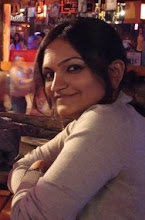Research is four parts planning, two parts reading, one part experiment, two parts re-planning, and one part analysis.
The task at hand is understanding stress physiology in individual tadpoles exposed to predators. The actual experiment would be, at maximum, a 3-4 day vigil on the behaviour and metabolic activity of tadpoles exposed to chemical cues from predators. Prep time: four weeks. It's like cooking butter chicken. The chicken is doused in two marinades with dozens of ingredients and kept for over four hours, but spends less than thirty minutes on the flame. The raw chicken takes its time to soak in the melted butter, oil, yogurt, lemon and spices. It's the same with most Indian meat dishes. Hours go into preparing it for the short quick assault of hot oil.
In India, high schools spend no time, none at all, in preparing future research enthusiasts for a large chunk of their work life: preparation. Lab classes- in rare cases, field work-is about telling the students what they're supposed to be looking out for, and then showing it to them. There are those concentric layers in cross-sections of roots and stems of every imaginable plant; the ink blue colour after adding iodine on the succulent leaf filled with starch; the eight and eight legs only on the spider.
Science education is supposed to inculcate the joy of discovery. That means I should not be told how to place my transects in a four acre-field filled with patches of daisies whose numbers I need to estimate within a day or two. Or that I am going to find a larger number of metamorphosing tadpoles in the hot, exposed waters of a shallow pool rather than the deeper, clearer, cooler, possibly fish-infested ones. Or that there are four parts of a flower, because yes, I see the purple petals, the green sepals below them, the tall blonde stems with the creased bulbs at the ends, and the singular pale green structure with the bulbous bottom and the sticky head. I teach a young Omani girl in a school following the IGCSE curriculum, where it took them three months to teach basic ecology. But she can answer that transect question better than most freshmen high schoolers her age. They took three months to teach her about the dynamics of eating and being eaten, but they developed independent thinking. A component most developing nations lack in their school curriculum. By the time you work hard and get used to doing well by reading and regurgitation, developing critical thinking becomes harder than steering a bull by its horns.
Science is an extension of logic. Newton got curious about the falling apple. Steam engines were conceptualized on steam pots. Sure, it took longer then, and time is...well, everything, including money. But good science is more than in-depth information. It's curiosity and efficient, logical search for reason. And we're in dire need of those virtues in scientists. I'd rather schools spend some time initiating good search and critical thinking habits in students. There's always time for competition and mass accumulation of information. Even Einstein said that it wasn't that one needed to know everything, just where to find it. Knowledge is everywhere. I wish I could say the same for curiosity.
So anyway, after a weekend of scanning 1711 Google Scholar search results, I have accumulated 741 pages of literature related to my experiment. The idea is to read all of that in time for the piece de resistance a month from now.
First up: 48 pages on Amphibian respiration and olfaction and their relationships: from Robert Townson (1794) to present.

No comments:
Post a Comment